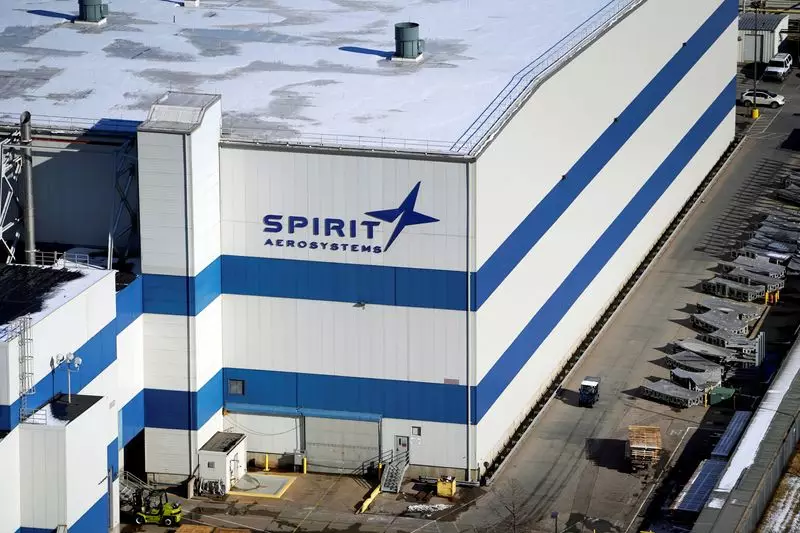The aerospace industry is invariably characterized by complex interdependencies and fierce competition. In a recent development, Airbus’s strategic intent to acquire certain assets of Spirit Aerosystems reflects not only a keen business maneuver but also the precarious state of one of its main suppliers. As the dynamic market conditions continue to shift, this deal not only highlights Airbus’s ambitious planning but also underscores the vulnerabilities within the industry. The cooperative approach taken by Airbus and Boeing, two titans of aerospace, signals a rare instance of collaboration amidst rivalry, aimed at fortifying the supply chain.
Spirit Aerosystems, having been spun off from Boeing nearly two decades ago, has faced significant financial challenges, raising doubts about its viability as a supplier. The latest developments revealed that Airbus is in talks to take control of four Spirit plants crucial for its A350 and A220 aircraft programs. This acquisition comes amidst Spirit’s dire financial situation, which was exacerbated by operational setbacks, including a critical issue with the Boeing 737 MAX. Spirit’s acknowledgment of its precarious position, culminating in a “going concern” warning, epitomizes the potential ripple effects across the aerospace sector.
The arrangement indicates a strategic division of Spirit’s assets between Boeing and Airbus. Boeing’s willingness to repurchase nearly all of Spirit’s other operations highlights its significant stake in maintaining control over its supply chain. Meanwhile, Airbus’s proactive stance in advancing funds to Spirit—combined with a coordinated recovery plan—aims to mitigate risks associated with the impending acquisition. This scenario exemplifies how competitors can converge in pursuit of a common goal of stabilizing a pivotal supplier.
Guillaume Faury, CEO of Airbus, recently expressed cautious optimism regarding the negotiation process surrounding Spirit’s acquisition. While progress has reportedly been made, Faury is candid about the challenges that lie ahead. His acknowledgment that this transition will be “not a walk in the park” reflects an awareness of the operational complexities involved in integrating an underperforming asset. The process of moving from signing the agreement to operational control entails numerous hurdles, including regulatory approvals and coordination of logistics.
Faury’s insights are crucial, as they signify Airbus’s grounding in reality. The operational integration post-acquisition will necessitate both strategic oversight and meticulous execution. By identifying early on that numerous “problems [need] to be solved,” Airbus is laying a foundation for realistic expectations within the broader context of corporate growth and supply chain management.
The financial ramifications for the aerospace sector are multifaceted. Notably, both Boeing and Airbus have pledged substantial sums to support Spirit’s operations while the acquisition is finalized, with the combined figure reaching nearly $457 million. This financial intervention not only serves to stabilize Spirit but also insulates the parent companies from potential disruptions in production. The proactive measures taken by both industry leaders reveal their commitment to maintaining operational integrity amid external challenges.
Analysts suggest that the recent equity raise by Boeing, amounting to approximately $24 billion, has significantly improved its financial standing. This positive shift alleviates concerns surrounding the Spirit deal, thereby diminishing risks for Airbus as well. The fact that both companies are channeling financial resources into Spirit not only reflects a commitment to collaboration but also underscores their vested interests in the long-term sustainability of the sector.
The unfolding dynamics surrounding the Airbus and Spirit Aerosystems deal reveal the intricate balance of competition and cooperation inherent in the aerospace industry. While Airbus is poised to take significant steps forward, it must navigate a landscape fraught with potential pitfalls. The dual support provided by both Boeing and Airbus showcases how cooperation can emerge even among competitors in times of crisis.
As momentum builds toward the completion of this acquisition, it will be crucial for Airbus to execute its integration strategies adeptly while retaining its commitment to innovation and quality. The outcome of this maneuver will undoubtedly influence future collaborations and competitive strategies in the aerospace sector, potentially redefining how leading manufacturers approach supply chain resilience and industry partnerships.

